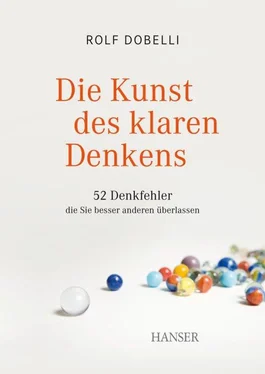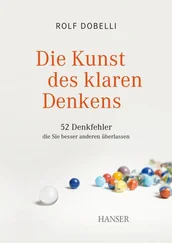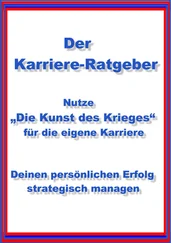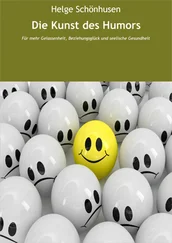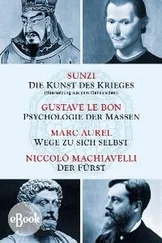Rolf Dobelli - Die Kunst des klaren Denkens
Здесь есть возможность читать онлайн «Rolf Dobelli - Die Kunst des klaren Denkens» весь текст электронной книги совершенно бесплатно (целиком полную версию без сокращений). В некоторых случаях можно слушать аудио, скачать через торрент в формате fb2 и присутствует краткое содержание. Год выпуска: 2011, Издательство: Carl Hanser Verlag, Жанр: Психология, на немецком языке. Описание произведения, (предисловие) а так же отзывы посетителей доступны на портале библиотеки ЛибКат.
- Название:Die Kunst des klaren Denkens
- Автор:
- Издательство:Carl Hanser Verlag
- Жанр:
- Год:2011
- ISBN:нет данных
- Рейтинг книги:4 / 5. Голосов: 1
-
Избранное:Добавить в избранное
- Отзывы:
-
Ваша оценка:
- 80
- 1
- 2
- 3
- 4
- 5
Die Kunst des klaren Denkens: краткое содержание, описание и аннотация
Предлагаем к чтению аннотацию, описание, краткое содержание или предисловие (зависит от того, что написал сам автор книги «Die Kunst des klaren Denkens»). Если вы не нашли необходимую информацию о книге — напишите в комментариях, мы постараемся отыскать её.
Die Kunst des klaren Denkens — читать онлайн бесплатно полную книгу (весь текст) целиком
Ниже представлен текст книги, разбитый по страницам. Система сохранения места последней прочитанной страницы, позволяет с удобством читать онлайн бесплатно книгу «Die Kunst des klaren Denkens», без необходимости каждый раз заново искать на чём Вы остановились. Поставьте закладку, и сможете в любой момент перейти на страницу, на которой закончили чтение.
Интервал:
Закладка:
Die Kontrollillusion
Das Beispiel mit den Giraffen aus Mayer, Christopher: »Illusion of Control – No One Can Control the Complexity and Mass of the U.S. Economy«, Freeman – Ideas on Liberty 51 (9), 2001.
Zum Würfeln im Kasino: Henslin, J. M.: »Craps and magic«, American Journal of Sociology 73, 1967, S. 316–330.
Plous, Scott: The Psychology of Judgment and Decision Making , McGraw-Hill, 1993, S. 171.
Der Psychologe Roy Baumeister hat nachgewiesen, dass Menschen mehr Schmerz tolerieren, wenn sie das Gefühl haben, sie würden eine Krankheit verstehen. Chronisch Kranke gehen viel besser mit ihrer Krankheit um, wenn der Arzt ihnen einen Namen für die Krankheit gibt und ihnen erklärt, was es mit der Krankheit auf sich hat. Das muss nicht einmal wahr sein. Der Effekt funktioniert selbst dort, wo es nachweislich kein Mittel gegen die Krankheit gibt. Siehe: Baumeister, Roy F.: The Cultural Animal: Human Nature, Meaning, and Social Life, Oxford University Press, 2005, S. 97 ff.
Das klassische Paper dazu: Rothbaum, Fred; Weisz, John R.; Snyder, Samuel S.: »Changing the world and changing the self: A two-process model of perceived control«, Journal of Personality and Social Psychology 42 (1), 1982, S. 5–37.
Jenkins, H. H.; Ward, W. C.: »Judgement of contingency between responses and outcomes«, Psychological Monographs 79 (1), 1965.
Zu den Placeboknöpfen gibt es diese vier Referenzen:
Lockton, Dan: »Placebo buttons, false affordances and habit-forming«, Design with Intent , 2008: http://architectures.danlockton.co.uk/2008/10/01/placebo-buttons-false-affordances-and-habit-forming/
Luo, Michael: »For Exercise in New York Futility, Push Button«, New York Times , 27.02.2004.
Paumgarten, Nick: »Up and Then Down — The lives of elevators«, The New Yorker , 21.04.2008.
Sandberg, Jared: »Employees Only Think They Control Thermostat«, The Wall Street Journal , 15.01.2003.
Die Incentive-Superresponse-Tendenz
Munger Charles T.: Poor Charlie’s Almanack , Third Edition, Donning, 2008, S. 450 ff.
Die Geschichte mit den Fischen, ebenda S. 199.
»Perhaps the most important rule in management is: ›Get the incentives right.‹« (ebenda S. 451).
»Fear professional advice when it is especially good for the advisor.« (»The Psychology of Human Misjudgment«, in: ebenda S. 452).
Die Regression zur Mitte
Vorsicht: Die Regression zur Mitte ist kein kausaler Zusammenhang, sondern ein rein statistischer.
Kahneman: »I had the most satisfying Eureka experience of my career while attempting to teach flight instructors that praise is more effective than punishment for promoting skill-learning. When I had finished my enthusiastic speech, one of the most seasoned instructors in the audience raised his hand and made his own short speech, which began by conceding that positive reinforcement might be good for the birds, but went on to deny that it was optimal for flight cadets. He said, ›On many occasions I have praised flight cadets for clean execution of some aerobatic maneuver, and in general when they try it again, they do worse. On the other hand, I have often screamed at cadets for bad execution, and in general they do better the next time. So please don‘t tell us that reinforcement works and punishment does not, because the opposite is the case.‹ This was a joyous moment, in which I understood an important truth about the world.« (Quote: See Wikipedia entry Regression Toward The Mean )
Siehe auch: Frey, Ulrich; Frey, Johannes: Fallstricke , Beck, 2009, S. 169 ff.
Die Tragik der Allmende
Hardin, Garrett: »The Tragedy of the Commons«, Science 162, 1968, S. 1243–1248.
Siehe auch sein Buch zum Thema: Hardin, Garrett; Baden, John: Managing the Commons , San Francisco, 1977.
Die Wirtschaftsnobelpreisträgerin Elinor Ostrom sieht in ihrem Buch Governing the Commons: The Evolution of Institutions for Collective Action (deutsch: Die Verfassung der Allmende ) die Tragik der Allmende nicht ganz so schwarz und weiß, wie sie Hardin sieht. Die Beteiligten können sich ja auch selbst organisieren. Dazu braucht es weder einen wohlwollenden Diktator noch Privatisierung. Selbstorganisation der Beteiligten genügt. Allerdings ist Selbstorganisation auch eine Art des »Managements«, wie es Hardin versteht. Ostrom steht somit nicht im Gegensatz zu Hardin.
The Outcome Bias
Die Geschichte mit den Affen, siehe: Malkiel, Burton Gordon: A Random Walk Down Wall Street: The Time-tested Strategy for Successful Investing , W. W. Norton, 1973.
Baron, J.; Hershey, J. C.: »Outcome bias in decision evaluation«, Journal of Personality and Social Psychology 54 (4), 1988, S. 569–579.
Falls Sie das Beispiel der Chirurgen nachrechnen möchten, nehmen Sie irgendein Statistikhandbuch und schlagen Sie das Kapitel »Ziehen aus einer Urne mit Zurücklegen« auf.
Siehe auch: Taleb, Nassim Nicholas : Fooled by Randomness , Second Edition, Random House, 2008, S. 154.
Zum Historikerirrtum, siehe auch: Fischer, David Hackett: Historians’ Fallacies: Toward a Logic of Historical Thought , Harper Torchbooks, 1970, S. 209–213.
Das Auswahl-Paradox
Beide Videos von Barry Schwartz auf TED.com.
Schwartz, Barry: The Paradox of Choice: Why More Is Less, Harper, 2004
Die Probleme des Auswahl-Paradoxes sind noch gravierender als im Text dargestellt. Laborstudien haben bestätigt, dass das Entscheiden Energie verbraucht, die dann später fehlt, wenn man sich gegen emotionale Impulse zur Wehr setzen will. (Baumeister, Roy F.: The Cultural Animal: Human Nature, Meaning, and Social Life , Oxford University Press,2005, S. 316 ff.)
Botti, S.; Orfali, K.; Iyengar, S. S.: »Tragic Choices: Autonomy and Emotional Response to Medical Decisions«, Journal of Consumer Research 36 (3), 2009, S. 337–352.
Iyengar, S. S.; Wells, R. E.; Schwartz, B.: »Doing Better but Feeling Worse: Looking for the ›Best‹ Job Undermines Satisfaction«, Psychological Science 17 (2), 2006, S. 143–150.
»Letting people think they have some choice in the matter is a powerful tool for securing compliance.« (Baumeister, Roy F.: The Cultural Animal: Human Nature, Meaning, and Social Life , Oxford University Press, 2005, S. 323)
The Liking Bias
Girard, Joe: How To Sell Anything To Anybody , Fireside, 1977.
»We rarely find that people have good sense unless they agree with us.« (La Rochefoucauld)
Cialdini hat ein ganzes Kapitel dem Liking Bias gewidmet: Cialdini, Robert B.: Influence: The Psychology of Persuasion, HarperCollins, 1998, Kapitel 5.
Der Endowment-Effekt
Das Beispiel von Charlie Munger, siehe: Munger, Charles T.: Poor Charlie’s Almanack , Third Edition, Donning, 2008, S. 479.
Ariely, Dan: Predictably Irrational. The Hidden Forces that Shape Our Decisions , HarperCollins, 2008, Chapter: »The High Price of Ownership«.
Kahneman, D.; Knetsch, Jack L.; Thaler, R.: »Experimental Test of the endowment effect and the Coase Theorem«, Journal of Political Economy , 98 (6), 1991, 1325–1348.
Carmon, Z.; Ariely, D.: »Focusing on the Forgone: How Value Can Appear So Different to Buyers and Sellers«, Journal of Consumer Research , Vol. 27, 2000.
»Cutting your losses is a good idea, but investors hate to take losses because, tax considerations aside, a loss taken is an acknowledgment of error. Loss-aversion combined with ego leads investors to gamble by clinging to their mistakes in the fond hope that some day the market will vindicate their judgment and make them whole.« (Bernstein, Peter L.: Against the Gods – The Remarkable Story of Risk, Wiley, 1996, S. 276 und S. 294)
Читать дальшеИнтервал:
Закладка:
Похожие книги на «Die Kunst des klaren Denkens»
Представляем Вашему вниманию похожие книги на «Die Kunst des klaren Denkens» списком для выбора. Мы отобрали схожую по названию и смыслу литературу в надежде предоставить читателям больше вариантов отыскать новые, интересные, ещё непрочитанные произведения.
Обсуждение, отзывы о книге «Die Kunst des klaren Denkens» и просто собственные мнения читателей. Оставьте ваши комментарии, напишите, что Вы думаете о произведении, его смысле или главных героях. Укажите что конкретно понравилось, а что нет, и почему Вы так считаете.
